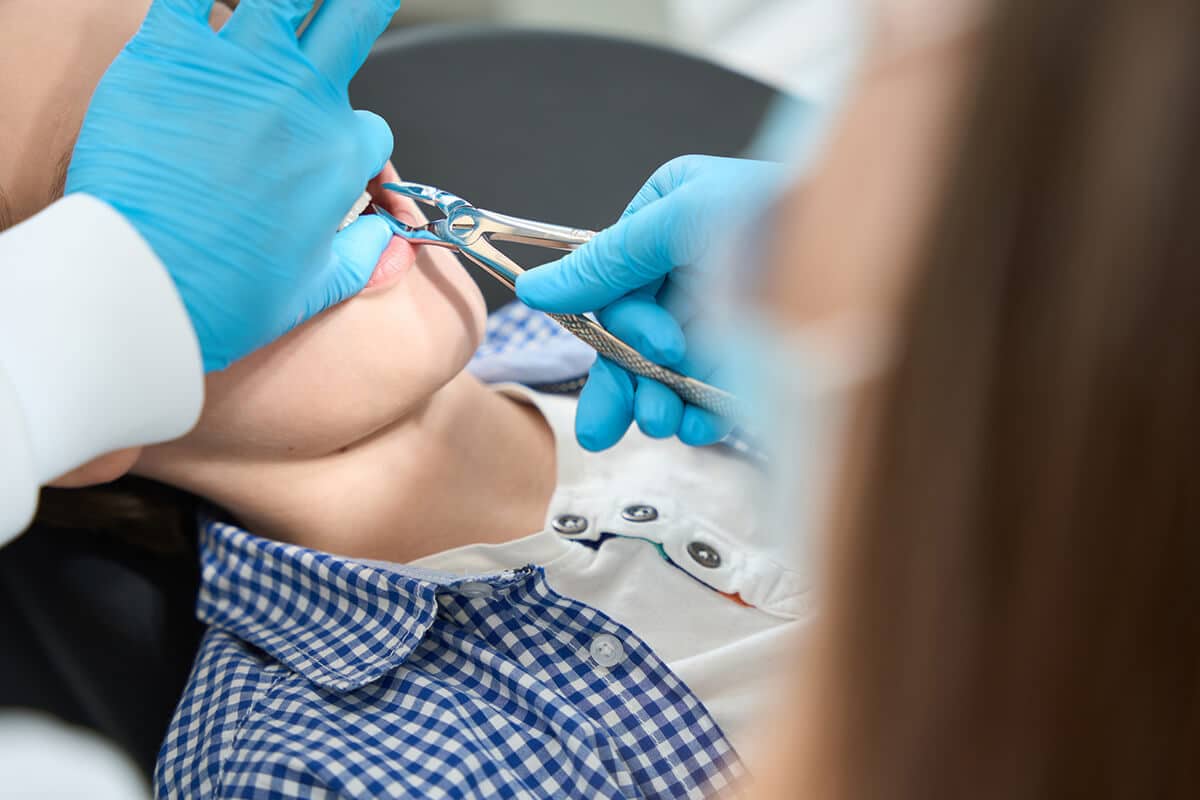How Long After a Tooth Extraction Can I Eat?

Eating the right foods after a tooth extraction is an essential part of the healing process. It not only ensures you get the nourishment you need to stay healthy, but it also reduces your risk of inflammation and infection.
Below is everything you need to know when it comes to eating after a tooth extraction.
Healing From a Tooth Extraction
After a tooth extraction, the healing process begins. You will still be numb from the local anesthetic, but this will soon dissipate. Once you are out of the dental chair, it is up to you to follow your dentist’s instructions and take steps to protect the vulnerable area.
You will start feeling better from your tooth extraction and be back to normal in about a week or two. However, it can take a month or more for full healing of the area to take place.
Can You Eat Immediately Following an Extraction?
It is best to avoid eating anything immediately following an extraction. Again, your mouth is going to be numb and it is difficult to know what you are biting – and whether you are steering clear of the extraction area.
As the numbness wears off, you can consider soft or liquid foods ok to consume. This should not include anything you have to use your teeth to chew. A few good options include:
- Yogurt – without any fruit, nuts, or granola in it
- Smoothies
- Broth
- Jello
- Pudding
- Ice cream
- Eggs
To protect the area and the empty socket, do not drink through a straw. Also, avoid foods that are too hot. Make sure it has cooled to a lukewarm before putting it in your mouth.
This should become your diet for the 24 hours following your procedure.
Eating After Your Extraction: Day 2 and Beyond
Once you get through the first initial healing period, you can start to add foods that are slightly more solid. You still want to avoid anything that requires you to do heavy chewing.
A few ideas of foods to choose from include:
- Yogurt with fruit
- Pasta
- Tofu
- Cheese
- Chicken
- Ground beef
- Soups
- Soft vegetables
- Bread
Below are the foods you should avoid:
- Chewy foods, including everything from candies to steak
- Spicy foods
- Crunchy or hard foods
- Alcohol
You may start consuming hot foods. As time passes over the next two weeks, you can slowly start eating more and more solid foods.
To give yourself the best chance of healing, be sure to chew on the side opposite of the extraction area.
Frequently Asked Questions
What happens if I don’t replace an extracted tooth?
Teeth rely on those around them for support. If they are extracted, the teeth may begin to shift and this can lead to many oral health issues down the road.
How soon after an extraction can you get a dental implant?
If you are replacing the tooth with a dental implant, you will want to make sure the extraction area is fully healed — usually 2 to 3 months. Sometimes, however, you will not need to wait at all.
Need a Tooth Extraction?
Are you in need of a tooth extraction? Our team at Kalmar Family Dentistry will perform the procedure, setting you up for success when healing at home.
Contact us today at 631-673-0670 to schedule an appointment.
